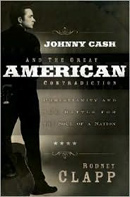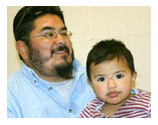Posted: 3/28/08
Texas Baptist Forum
Reason to swap
Regarding your editorial on “U.S. faith swapping,” (March 17) illicit affairs are not the only reason to leave a marriage. Sometimes the spouse is overbearing, neglectful and abusive.
| • Jump to online-only letters below |
|
| Letters are welcomed. Send them to marvknox@baptiststandard.com; 250 words maximum. |

“Honestly, if we could harness some of the emotion from this and turn it to evangelism and missions, we could see a massive change in our missionary and evangelistic endeavors.”
Frank Page
Southern Baptist Convention president, commenting on the furor after some Southern Baptists—including Page —signed a statement calling for environmental protection (Baptist Press/RNS)
“One day, I have to give an account to God and not to nobody else of what I’ve done in my life. And that’s why I’ve said and shared the stuff with y’all that … I wouldn’t like to share with y’all.”
Andy Pettitte
Yankees pitcher and Baptist Sunday school teacher, telling Congress he used human growth hormone but did not consider it cheating (New York Daily News/RNS)
“Women have two places—in front of the sink and behind the vacuum.”
Micah Armstrong
Evangelist, preaching to University of Alabama students, also saying they will go to hell for drinking, cursing, having pre-marital sex, watching movies or reading Harry Potter books (Associated Press/RNS) |
Having come of age spiritually in the midst of the Baptist infighting of the 1980s and 1990s, I, like many of my generation, left an unhealthy Baptist marriage and sought less contentious places of worship.
At Baylor University in the late 1980s, I watched as my professors were abused in photocopied publications passed around campus and at Baptist General Convention of Texas meetings. I attended those meetings, which were as partisan and divisive as mainstream politics.
I graduated from South-western Seminary a few weeks after watching the trustees treat Russell Dilday in a way that should bring shame to even the most corrupt corporate board. I talked to professors at Southwestern who were driven out of their positions by trustees who sent their student interns into class with orders to report on any questionable teaching they heard.
Since graduating from seminary, I have been happy to attend nondenominational churches that are not weighed down by the institutional sicknesses that have plagued the Southern Baptist Convention and the BGCT. Are these churches perfect? No. But I certainly do not feel like I am missing out on anything by not being a part of the denomination in which I was raised.
I know there are some lovely, healthy ponies in the Baptist barn. I just got tired of the piles and piles of manure.
Paul Mastin
Fort Worth
Sign of covenant?
You quite properly report that a large minority of American parents have decided to avoid nontherapeutic circumcision of their newborn sons (March 17). Your article asks, “Are parents cutting out the sign of the covenant?” The answer is, “No, they are following the New Covenant.”
You apparently overlooked the teaching of Scripture, including the council at Jerusalem (Acts 15), at which Paul, Banabas, Peter, James and others decided new Christians should not be required to submit to circumcision.
Circumcision was not included in the requirements set forth in the letter to Gentile believers (Acts 15:22-29). Christians from that day forward have been exempt from the Old Testament Abrahamic covenant of circumcision (Genesis 17:9-14).
Paul said we should not have confidence in the flesh (Philippians 3:3), meaning that cutting off a body part is not the way to salvation. Christians are not supposed to circumcise.
Paul twice warned of the falseness of the claims made for circumcision (Galatians 2;4; Titus 1:10-11). His warning is equally valid today, because many false medical claims are put forward for circumcision. Parents should be skeptical of doctors who advocate circumcision.
The Bible is supposed to be our authority for faith and practice.
Why do American Christians not follow the guidance of the Bible with regard to circumcision?
George Hill
Vice president for bioethics and medical science
Doctors Opposing Circumcision
Seattle, Wash.
Thank you so much for the article on circumcision (March 17). I am a Texan, a Christian, an intactivist—anti-circumcision activist—and the mother of an intact son.
Mandy Ballard
Tyler
Stick to business
I am saddened, embarrassed and confused by the contents of Statement 2, “It is Prudent to Address Global Climate Change” portion of the recently issued A Southern Baptist Declaration on the Environment and Climate Change (March 17).
First, I am saddened because my beloved brethren have been caught up in this economic scam that has been falsely portrayed as science. I suppose that when the tide seems to be flowing one way, some feel that is the only way to swim. History is rife with tragic examples of “consensus opinion” being tragically wrong.
Secondly, I am embarrassed that, despite disclaimers to the contrary, the ill-advised statement will be assumed to be shared by all of us who claim the name Baptist Christian.
Finally, I am confused about what possible good can ever come from nonscientists taking bold stands on unsettled social issues that are still in the very early stages of research. Many esteemed climate scientists have stated that even they don’t yet know enough to recommend what, if any, action is warranted.
I humbly ask that we all stick to the business to which we have been called—going and telling about the eternal hope that will survive far beyond the inanities of this wisp of time we call life. To do otherwise takes us from being salt and light to being just more voices howling at the moon, hoping to scare it away.
Jerry Barker
Falfurrias
Silly significance search
I can’t stop laughing over “Indiana Jones would be proud: Prof claims he has found lost Ark of the Covenant” (March 17).
I am trying to imagine why this is a “story,” why you would publish it and could anyone take it seriously? Surely you published this as a “take a look at how silly some have become in their search for significance” article.
The other article on that page, “Oxford researchers get $4 million to study origins of belief in God” makes me want to see if I can get a grant to study what makes people say stuff like, “On the flip side, just because something is natural doesn’t mean it’s true.” Say what? Is that psycho-babble or gobbledygook?
Thanks for the humor; God knows there is little of it in Baptist circles these days.
Besides, everyone knows the Ark of the Covenant is in a warehouse somewhere deep in the bowels of Washington, D.C.
Bill Weaver
North Richland Hills
Out-of-step scientists
Deborah and Loren Haarsma (March 17) apparently believe evolution is God’s way of creating life and evolving it into its present state. If so, they are out of step with the basics of evolutionary theory, which insists evolution happens without purpose and without direction from any outside planner or designer (read God).
As William Provine says in Evolution and the Foundation of Ethics, “Persons who manage to retain religious beliefs while accepting evolutionary biology have to check their brains at the church-house door.”
When I left the University of Texas as a petroleum engineer, I was a confirmed believer in evolution. In nearly 60 years since, my studies have convinced me Darwinism is shown to be wrong by science itself. The fossil record, for instance, shows life has not evolved as Darwin predicted. Instead, new life forms consistently appear in the rocks fully developed, with no transitional stages leading up to them.
I could easily become a theistic evolutionist if I could convince myself evolution is true. I could just rationalize away any troubling Scriptures by remembering the Bible is not a book about science. Unfortunately, evolution is not such good science, either, when challenged with the facts of true science, like paleontology.
Ken Boren
Rowlett
Full of goodness
The Apostle Paul’s writings indicate Paul was a genuine individual who was committed to the Lord Jesus Christ, yet his commitment did not end there. Paul was committed to friends, colleagues and fellow brothers and sisters in Christ.
One statement, found in Romans 15:14, has had a profound impact on me. Paul writes, “I myself am convinced, my brothers, that you yourselves are full of goodness, complete in knowledge and competent to instruct one another.” This statement indicates Paul’s absolute confidence in his fellow believers’ goodness.
I don’t think Paul was describing a goodness that was intrinsic, but rather that which was as a result of a relationship with God through Christ. Pastors should believe in those we lead!
Next, Paul believed their knowledge to be complete, and this drives home a thought of a foundational Baptist belief in each believer having the ability to discern/understand God’s word.
Paul also believed his friends to have the ability to instruct one another. Pastors may get the idea the church “can’t do it without us.” Paul’s confidence indicated a level of belief in his fellow brothers and sisters, and to me this is an amazing statement of leadership.
Leaders must convey trust and confidence in those we lead.
Bill Adams
Belton
What do you think? Because we affirm the priesthood of all believers, we value the dialogue offered by our readers’ forum. Send letters to Editor Marv Knox by mail: P.O. Box 660267, Dallas 75266-0267; or by e-mail: marvknox@baptiststandard.com. Due to space considerations, maximum length is 250 words, and only one letter per writer per quarter will be published .
News of religion, faith, missions, Bible study and Christian ministry among Baptist churches, in Texas, the BGCT, the nation and around the world.








